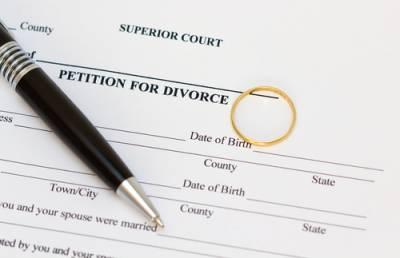What is a Default Divorce and When is it Used in Illinois?
 Getting divorced involves many specific procedures and processes. The petitioner is the spouse who files for divorce by submitting a Petition for Dissolution of Marriage to the Court. The respondent is the spouse who is served with divorce papers. The respondent has the opportunity to “respond” to the divorce petition and participate in the divorce proceedings. For example, the respondent may disagree with the petitioner’s choices regarding property division, parental responsibilities, or other divorce matters. Responding to the divorce petition gives the petitioner a chance to negotiate these issues with the other spouse and reach a settlement. If no agreement is reached, the case proceeds to trial, where a Judge makes a decision on the unresolved issues.
Getting divorced involves many specific procedures and processes. The petitioner is the spouse who files for divorce by submitting a Petition for Dissolution of Marriage to the Court. The respondent is the spouse who is served with divorce papers. The respondent has the opportunity to “respond” to the divorce petition and participate in the divorce proceedings. For example, the respondent may disagree with the petitioner’s choices regarding property division, parental responsibilities, or other divorce matters. Responding to the divorce petition gives the petitioner a chance to negotiate these issues with the other spouse and reach a settlement. If no agreement is reached, the case proceeds to trial, where a Judge makes a decision on the unresolved issues.
If a spouse forgoes his or her opportunity to participate in the divorce process, the Court may enter a default judgment against the spouse.
Default Judgments in Illinois Divorce Cases
Illinois law states that a respondent has 30 days to file an appearance and respond to a divorce summons. The respondent may request an extension. However, the respondent cannot prolong the divorce forever. If the respondent does not respond within the appropriate time frame, the petitioner may file a motion to hold the spouse in default. Essentially, filing a motion for a default divorce is asking the Court to proceed with the divorce case in the absence of the other spouse.
Divorce Terms When a Case is in Default
If the court issues a default judgment, this means that the petitioner is granted the divorce terms he or she requested (within reason). Because the other spouse has chosen not to participate, no one is there to challenge the petitioner’s demands. Property division, child custody, spousal maintenance, and other divorce issues will be decided solely by the petitioner.
Default judgments are considered final. However, the respondent has one last chance to contest the judgment. In Illinois, respondents have 30 days after the default judgment is entered to ask the Court to vacate the judgment. However, the respondent will need a legitimate reason to explain why he or she waited so long to respond.
Whether you are the respondent or the petitioner in your divorce, it is important to cooperate with all aspects of the divorce process. Failure to comply with the Court’s requirements greatly reduces your chances of a favorable divorce outcome.
Contact an Arlington Heights Divorce Lawyer
Palatine, Illinois divorce attorney Nicholas W. Richardson has more than 15 years of experience representing clients in divorce. He can provide the customized legal guidance and support you need. Call 847.873.6741 today to schedule a free appointment.
Source:
https://www.ilga.gov/legislation/ilcs/ilcs4.asp?DocName=075000050HPt%2E+IV&ActID=2086&ChapterID=59&SeqStart=3800000&SeqEnd=5300000
Introducing The Law Office of Nicholas W. Richardson
Nicholas W. Richardson is an experienced divorce lawyer and mediator whose comprehensive legal knowledge, commitment to clients and reputation for results bring lasting solutions to your problems.






